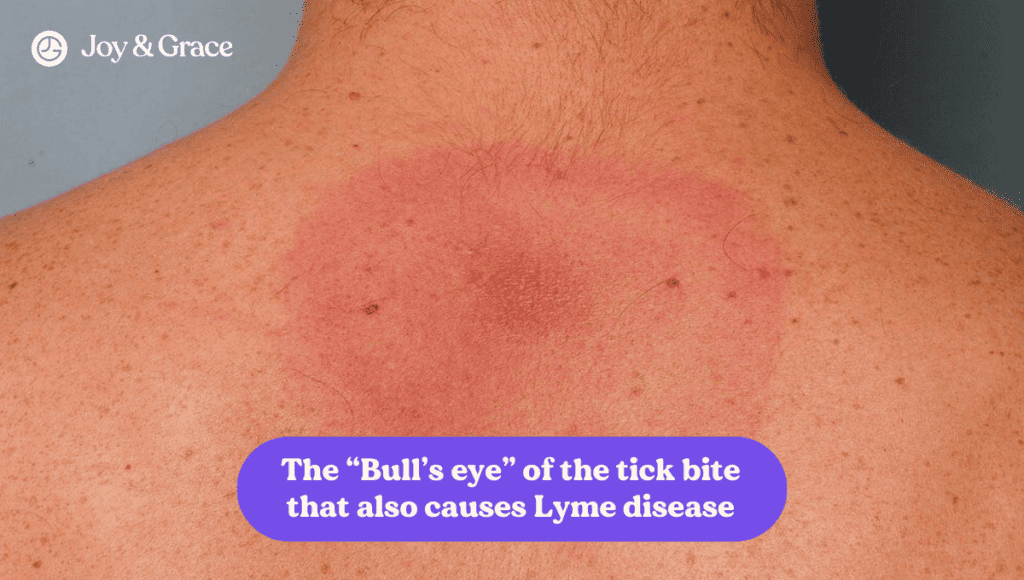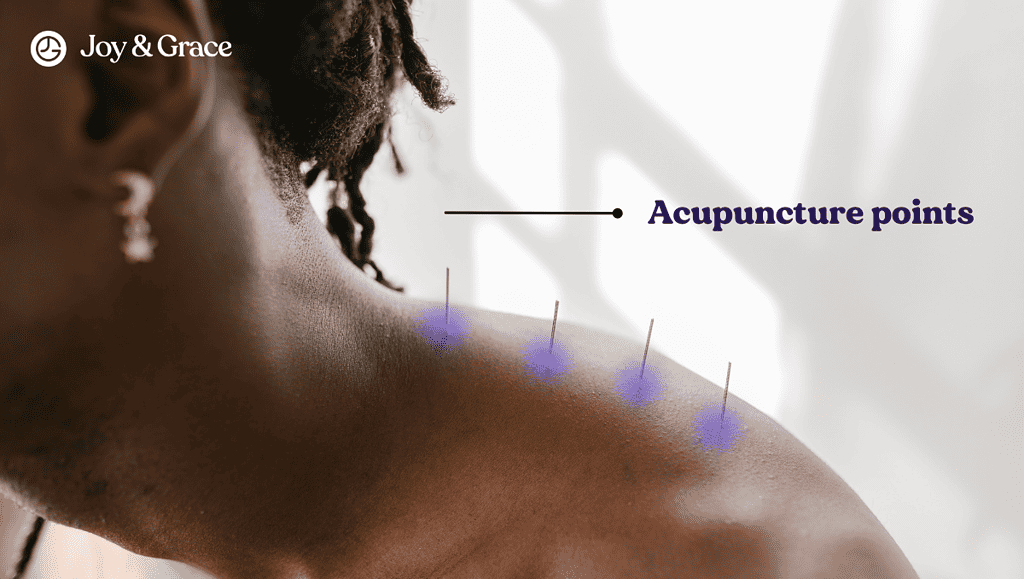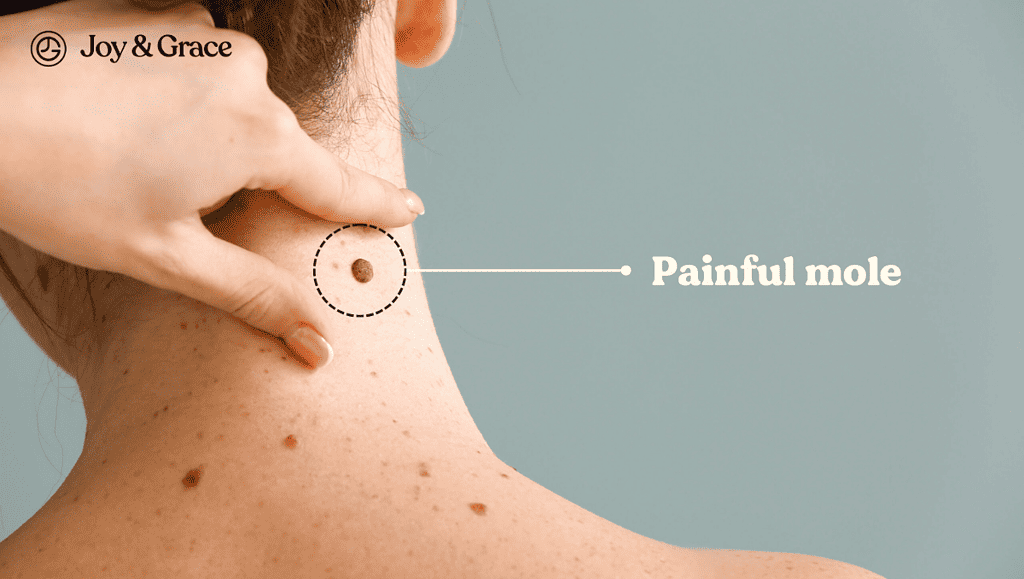We've all had those days when it feels like we're carrying the weight of the world on our shoulders. But what if, out of the blue, a searing, burning pain radiates from the nape of your neck, down your shoulders, and into your arms?
One moment, you are eagerly going about your day, and the next, you're caught in a grip of pain that's tough to describe but impossible to ignore. This intense burning pain in your neck, shoulder, and even down your arm may not just be because of a hectic day. It might be an indicator of underlying health issues.
Why Do I Have Burning Pain In My Shoulder And Neck?

First of all, “burning” pain is a subjective complaint and can mean very different things.
One of the most likely causes of burning pain in your shoulders and neck can be muscle soreness and fatigue. You’ll likely feel this sensation after a heavy workout session (hence the saying “feel the burn”).
But why does this happen?
During intense exercise, your muscles need a lot of energy, which mainly comes from breaking down glucose (a type of sugar). When your body’s oxygen supply can’t keep up with the energy demands, it produces a product called lactate.
Contrary to popular belief, lactate itself doesn't directly cause muscle burning or soreness. The real culprit is the buildup of hydrogen ions (H+) released when lactate is produced. The buildup of these ions makes the muscles acidic. More acidic muscles can't contract as forcefully, leading to that burning feeling and fatigue during intense exercise.
So, if you experience burning pain during or after working out your neck and shoulders, this might be the reason.
Overuse of these parts through repetitive activities can also contribute to the pain. Even poor posture can be a factor. But this isn’t always the case. Sometimes, the burning sensation in your neck and shoulders can result from an underlying condition or trauma.
For example, a 40-year-old man developed an unusual shoulder condition called focal dystonia three years after injuring his shoulder in a motorbike accident. He had severe muscle spasms and an enlargement of his trapezius muscle near the shoulder. His shoulder was stuck in a raised position, and he had constant burning pain in the enlarged muscle that spread to his head and neck. Tests revealed tendinitis but no nerve damage.
Speaking of nerve damage, it also deserves mention as a potential contributor to burning pain in the neck and shoulder regions.
Can Nerve Problems Cause Burning Pain In The Neck And Shoulder?
Burning pain and sensations are common forms of neuropathic (nerve-related) pain.
Neuropathic pain can be due to problems with your central nervous system, which is made up of your brain and spine. It can also stem from issues with your peripheral nervous system, which is the network of nerves found in the rest of your body.
- Pinched nerve
A pinched nerve in the neck, or cervical radiculopathy, is probably second on the list of most likely suspects for burning pain in the neck and shoulders. It happens when surrounding tissues, typically your muscles or bones, press on the nerve root exiting the spinal cord. A pinched nerve can result from:- Herniated or slipped discs
- Cervical spondylosis – a common, age-related condition where wear and tear leads to degeneration of the cervical spine
- Whiplash injury
The nerves of the neck also supply the shoulder and arms. When they get "pinched," the pain signals travel along the nerves, causing the pain to radiate down the shoulder and arms.
- Burner Syndrome
If you engage in high-impact contact sports like rugby or wrestling, you might also have Burner syndrome.
Burner syndrome, also known as a “stinger” or a “burner,” is a common nerve injury resulting from trauma to the neck or shoulder.
It is characterized by a sudden, intense burning or stinging pain that radiates from the shoulder or neck down towards the arm, usually on one side. The pain typically lasts for a few seconds to minutes, but the effects can linger for a longer period of time in some cases.
The injury occurs when the head is forced to one side and the shoulder to the opposite side, stretching or compressing the brachial plexus. The brachial plexus is a network of nerves that control the muscles and sensations in the shoulder, arm, and hand.
- Peripheral neuropathy
Peripheral neuropathy is damage to the nerves outside the brain and spinal cord. Pain from peripheral neuropathy tends to follow the course of the affected nerves. Common causes of peripheral neuropathy include:- Diabetes
- Nutritional deficiencies
- Alcoholism
- Autoimmune diseases such as lupus and rheumatoid arthritis
- Repetitive injuries
- Central Pain Syndrome
This refers to neurological pain caused by damage to the central nervous system—the brain and spinal cord. Central pain syndrome is often the result of strokes, trauma to the brain, or medical conditions like multiple sclerosis. It can cause pain and a burning or tingling sensation. The pain can affect a large part of your body or be localized in smaller areas, depending on the severity of the damage.
These reasons usually lead to more severe symptoms, so central pain is less likely. Still, it's best to consult a medical professional for a proper evaluation and diagnosis.
Can Stress Cause Burning Neck Pain?
While stress itself may not directly cause burning neck pain, it can trigger or worsen conditions that lead to neuropathic pain.
In two experimental studies on mice, the stress hormone corticosterone increased the mice’s sensitivity to pain after a nerve injury. Stress also amplified pain signaling in the brain by increasing the activity of pain receptors.
This comes as no surprise, as studies have shown that prolonged or intense stress can cause inflammation and pain.
Stress can also make us more sensitive to pain (hyperalgesia). For example, stress can make body aches from bad posture feel much worse.
Which Infection Causes A Burning Sensation In The Neck And Shoulders?
Surprisingly, infections can also cause burning pain in your neck and shoulders. This can be due to the effects of the microbe on your nerves. Alongside this symptom, infections typically manifest with other distinctive signs and symptoms that can help in identifying the specific cause. Possible infectious causes include:
- Shingles
Shingles is an infection caused by the varicella-zoster virus. It’s the same virus responsible for chickenpox. This virus lies dormant in your nerves near your spinal cord and brain after you've recovered from chickenpox.
When shingles affect the nerves in your upper back or neck, the back of your neck and shoulders may feel hot and burning. This feeling is usually only on one side. The pain can also spread down your arm.
Other common symptoms of shingles include:- A red rash
- Itching or tingling sensations
- Sensitivity to touch
- Fatigue
- Lyme disease
Lyme disease is a bacterial infection caused by Borrelia burgdorferi. The bacteria enter your body through the bite of an infected tick. The first sign of the infection? A red “bull’s eye” rash and, you guessed it, burning pain at the site of the bite.
If a tick carrying the disease bites you in the neck or shoulder region, it may cause a burning pain there. So be on the lookout for these creepy crawlies the next time you go frolicking in the meadows or woods.
Other symptoms can include:- Fever
- Fatigue
- Headache
- Muscle And joint aches
- Neck stiffness
- Swollen lymph nodes

- COVID-19
COVID-19 can attack multiple organ systems, not just your respiratory system. So, it is no surprise that it can also attack your musculoskeletal and nervous systems.
According to a report, some COVID-19 patients can develop post-COVID-19 pain syndrome. This is characterized by musculoskeletal pain and sometimes neuropathic pain. Among patients experiencing neuropathic symptoms, 23.2% had burning sensations.
In one case, a woman in her 40s was hospitalized with COVID-19 symptoms, including body aches and loss of smell. On the second day, she developed severe burning neck and back pain made worse by light touch (allodynia) and heat. Allodynia is another type of neuropathic pain that manifests as pain in response to a stimulus that is typically not painful.
Remember, while infections can cause burning pain, other health conditions could also result in similar symptoms. If you're unsure about the cause of your pain, always seek advice from a healthcare provider.
What Are The Symptoms Of Nerve Damage In The Neck And Shoulder?

Nerve damage in the neck and shoulder can cause various symptoms that can be quite uncomfortable. Imagine your nerves as tiny messengers that carry important signals between your brain and different parts of your body. When these messengers get disrupted, it can lead to a range of sensations, including:
- Burning pain or sensation
Some people describe nerve damage as feeling like their skin is on fire. A persistent burning sensation in your neck and shoulder can indicate that the nerves are not functioning correctly.
- Pins and Needles
Have you ever sat in an awkward position for too long, and your foot fell asleep, feeling all tingly and numb? That's a bit like what happens with nerve damage. You might experience a pins-and-needles sensation in your neck and shoulder.
- Numbness
Imagine your shoulder or neck feeling strangely numb, as if you're touching it through a thick glove. It's a peculiar and unsettling sensation.
- Tingling
Have you ever had ants crawling on your skin? That's similar to the tingling sensation from nerve damage.
- Weakness
Nerves control your muscles. When damaged, your muscles might not get the right signals, leading to weakness. Lifting things or even holding a cup might suddenly become difficult as if your strength has momentarily abandoned you.
If you’re experiencing sudden weakness, we strongly recommend seeking immediate medical attention. If coupled with other signs, such as slurred speech, confusion, or facial drooping, it may be a sign of a stroke.
- Limited Range of Motion
The pain, along with weakness, can also restrict your movements. Turning your head or lifting your arm might become challenging. This can make simple tasks like checking your blind spot while driving surprisingly difficult.
- Other types of pain
Neuropathic pain can also range from a dull ache to sharp, shooting pains. This pain can radiate from your neck to your shoulder, making even simple movements uncomfortable.
How Do Doctors Diagnose Burning Pain In Neck And Shoulder?

Doctors diagnose burning pain in the neck and shoulders the same way they do general body pain. While muscle tension and arthritis commonly provoke aching neck and shoulder pain, clinicians usually keep nerve damage on the radar when pain has a burning character.
Doctors primarily start with a comprehensive discussion about your medical history and symptoms. They will start by asking you questions about:
- The onset of the pain
- Duration
- Intensity
Your doctor would also want to understand whether the burning sensation is localized in one area, like the back of the neck or shoulder blade, or whether it travels to other areas.
A physical examination usually follows. Your doctor might test your range of motion, muscle strength, and reflexes in the painful regions. In some cases, they might apply gentle pressure to the neck or shoulder areas to identify any sensitive spots.
In most cases, doctors will be able to distinguish muscle pain from neuropathic pain based on the history and physical exam alone. However, sometimes, they might need to perform additional diagnostic tests to help identify the exact cause of your pain. This can include:
- Imaging tests such as X-rays, CT Scans or MRIs
- Blood tests
- Nerve conduction tests or electromyograms to help assess nerve and muscle function
Your doctor may also refer you to specialized professionals if needed. For example, a consultation with a neurologist might be appropriate since burning pain usually stems from nerve irritation or damage.
Remember, being actively involved and honest when discussing your pain is crucial for an accurate diagnosis.
How Do I Stop My Neck And Shoulders From Burning And Hurting?
Well, this depends on the exact cause. The best way to stop the burning pain in your neck and shoulders is to address the underlying cause. But this doesn’t mean you don’t have anything in your toolbox that can help.
For example, simple lifestyle changes can help you find relief if the pain is due to neck or shoulder muscle overuse. This includes:
- Giving your body adequate rest and recovery time
- Ice and heat therapy
- Gentle stretches and exercises
- Maintaining proper posture
- OTC pain relievers
However, burning pain from nerve problems may require heavier artillery.
How Is Burning Neck And Shoulder Pain Treated?
Pinpointing a nerve injury as the cause of that burning pain in your neck and shoulders opens you up to a wide range of treatment options.
But before that, it’s important to note that painkillers usually don’t help with neuropathic pain. Remember the COVID case? Well, pain medications like acetaminophen and NSAIDs didn't help.
Neuropathic pain is usually treated with the following:
- Antidepressants
Tricyclic antidepressants and certain newer antidepressants can help relieve neuropathic pain. In the study we mentioned, antidepressants also reduced the pain-increasing effects of stress.
Examples of antidepressants include:- Amitriptyline
- Duloxetine
- Venlafaxine
- Anticonvulsants
Drugs like gabapentin and pregabalin are commonly used to treat neuropathic pain. They work by stabilizing abnormal electrical activity in the nervous system.
- Topical medications
Creams or patches containing lidocaine or capsaicin can be applied to the skin to relieve localized pain.
- Nerve Blocks and Steroid Injections
Injecting local anesthetics or steroids into the affected nerves can provide temporary relief.
- Nerve Stimulation
Nerve stimulation involves applying a mild electrical current to the skin. This can help disrupt pain signals and provide relief.
- Physical therapy
Physical therapy is effective for managing burning neck and shoulder pain, especially when related to nerve compression or structural issues. It involves exercises and manual therapy to improve mobility and strengthen muscles. - Acupuncture and massage therapy
Some people find relief from neuropathic pain through acupuncture. Acupuncture involves inserting thin needles into specific points on the body. Massage therapy could also be beneficial.
- Cognitive-behavioral therapy (CBT)
CBT can help patients manage pain by changing their thought patterns and behaviors related to pain. It can also help you improve your coping strategies and manage stress.
- Surgical Interventions
Surgery may be an option in some circumstances. Surgery is usually performed if nerve compression or another structural issue is the root cause of the neuropathic pain.
Takeaway
Burning pain in the neck and shoulders can stem from various causes. It can range from muscle strain to severe neurological conditions. While overuse injuries often cause a dull ache, burning sensations likely point to an underlying nerve issue.
Pinched nerves and other nerve problems can disrupt signals and cause uncomfortable symptoms. This can include burning, tingling, numbness, and muscle weakness. Getting an accurate diagnosis is crucial, as the treatment approaches differ significantly.
Rest, physical therapy, and OTC painkillers may help with muscle pain. However, neuropathic pain often requires a different approach. Doctors may suggest prescription medications like antidepressants or anticonvulsants. You might also undergo nerve blocks, stimulation, or even surgery.















